New Superman creative team - "Superman should be fun. He should be having fun"
Superman's bright and fun new status quo (and new ongoing series) starts with creators Joshua Williamson and Jamal Campbell
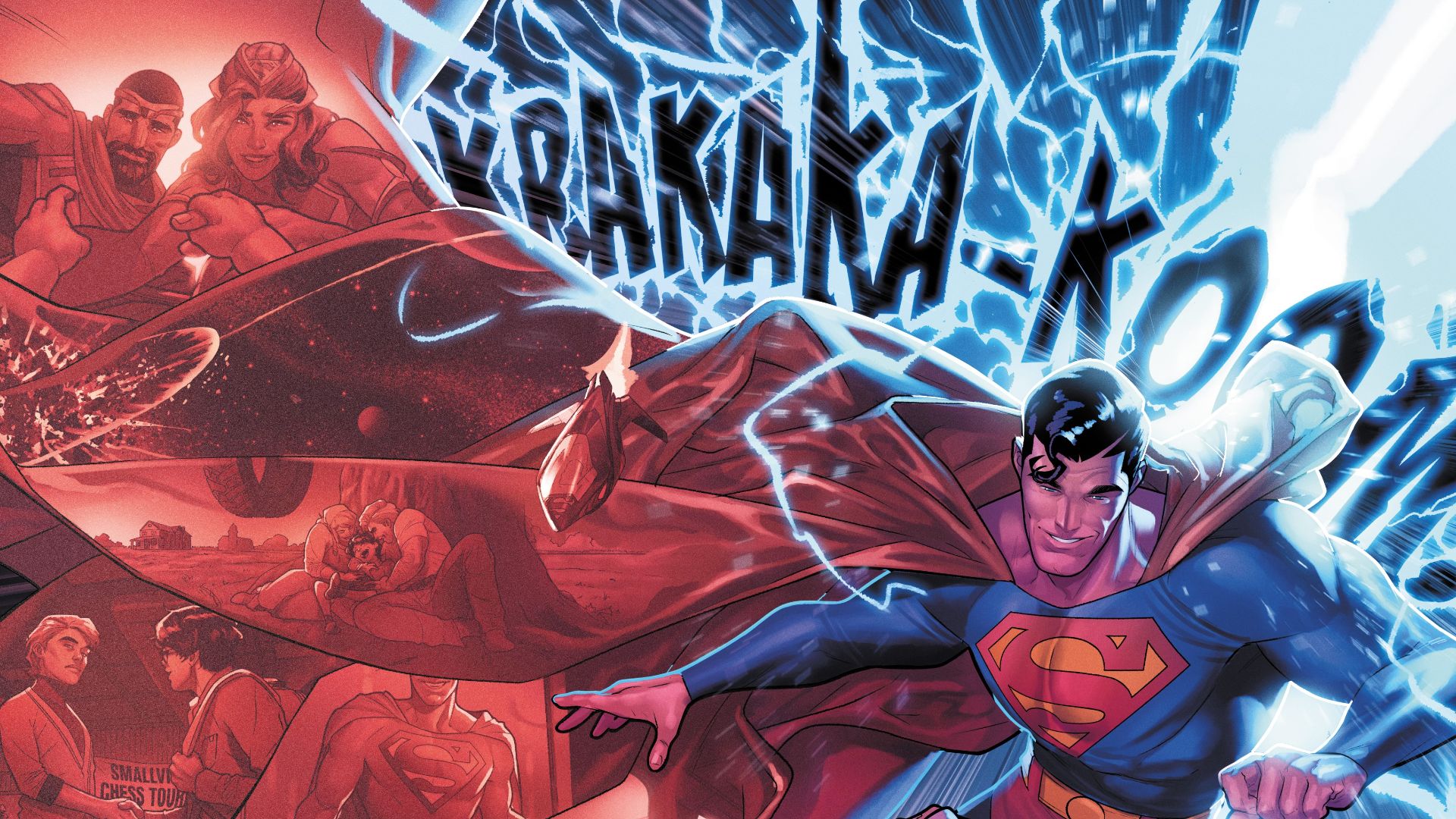
A new day is dawning at DC Comics. After the frightful events of Dark Crisis on Infinite Earths and Lazarus Planet, it's time for things to get a whole lot brighter. And who better to lead DC into its shiny new future than the Man of Tomorrow?
On February 22, the Adventures of the Man of Steel begin anew with Superman #1, written by Joshua Williamson, drawn and colored by Jamal Campbell, and lettered by Ariana Maher. The latest #1 for the world’s #1 superhero sees a devious new scheme developed by arch-nemesis Lex Luthor; but could it be for Superman's own good?
Ahead of Superman #1's release, Newsarama sat down with artist Jamal Campbell and writer Joshua Williamson to discuss what lies ahead the DC flagship hero, how the creators got there, and what Superman means to fans and culture throughout the ages.
Plus we'll take a first look at pages from Superman #1.
Grant DeArmitt for Newsarama: Joshua and Jamal, in the opening of Superman #1, we see a teenage Clark Kent blasting music in his parents' house, eliciting a response from Martha. So Jamal, I want to start by asking you; what is teenage Clark Kent playing circa 1997?
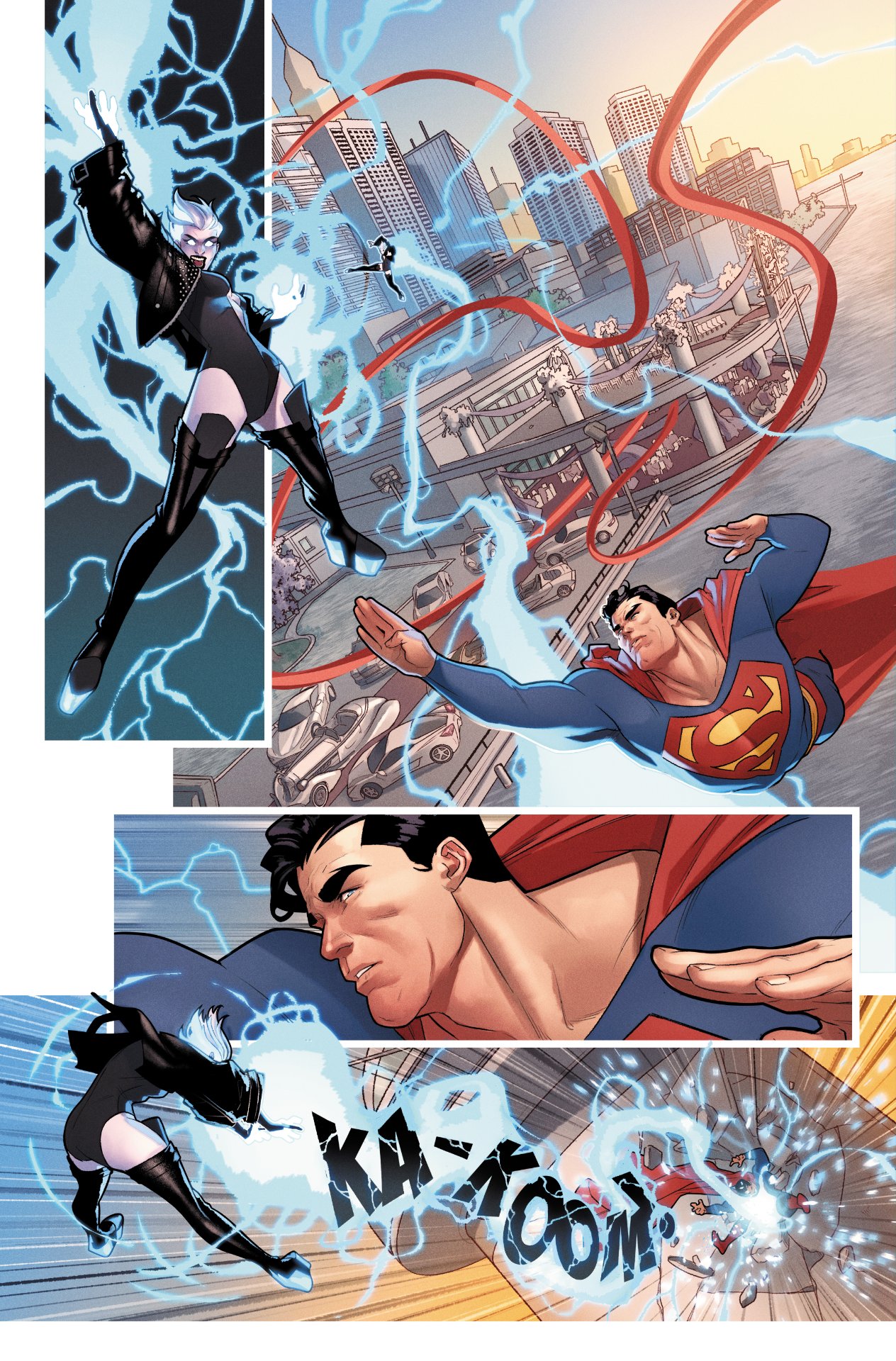
Jamal Campbell: When Josh sends his scripts, one thing he says is, "I'm thinking of this kind of music for this issue," which is super helpful. But like, it's not my song. So personally, I'm going through classic rock like Rage Against the Machine. I'm going to The Doors and stuff like that.
I’m just trying to get what he means and then filtering out something that speaks of Superman to me. But yeah, this is all Josh because it's not really a genre I listen to. Josh, you actually have an answer to this.
Get the best comic news, insights, opinions, analysis and more!
Joshua Williamson: I'm not going to say what it is now because we're going to release the playlist at a later date. But you know, I had to think about music I would like and Clark would; music that Pete Ross would give the class. But also you're thinking about Clark Kent as the country boy because he was a kid who grew up in Smallville.
He was always a little awkward, always a little shy because of what he was going through. And you know, Ma and Pa listen to country music, so if you're thinking about that, what would Pete Ross give to him as an act of rebellion? I put a lot of thought into those playlists and spent a lot of time on it. I think people will be surprised when we finally release it.
Nrama: So what I'm hearing is that it's 100% Weird Al, top to bottom.
Williamson: [Laughs] I always love a Weird Al.
Nrama: Alright, moving into the actual issue. Jamal, correct me if I'm wrong, but this is your first Superman book, right?
Campbell: I was on Naomi, so Superman was a big inspiration to that whole line, and he popped up every now and then. But yeah, this is the first time I am drawing Superman front and center. This is Clark. This is his adventure.
Nrama: Yeah, so what is that like? What was going through your head when you found out, what, like a year or so ago?
Campbell: I think it's almost a year exactly from now.
It's funny because you think of Superman as this big marquee DC hero. Like, super intimidating. The gravity of it all sort of weighs on you, but I'm not generally fazed by all that stuff. I'm very much like, ‘Oh yeah, just let me have fun with it.’
The past few years I've been working on Far Sector and Naomi. I was very worried in those titles about having to create something new that fit into the DC universe but was not too similar to anything else. But everyone knows Superman. I know what Metropolis looks like. I’ve known those characters for years. I can just not worry about anything and just have fun with it.
Nrama: Sounds freeing.
Campbell: Yeah, absolutely.
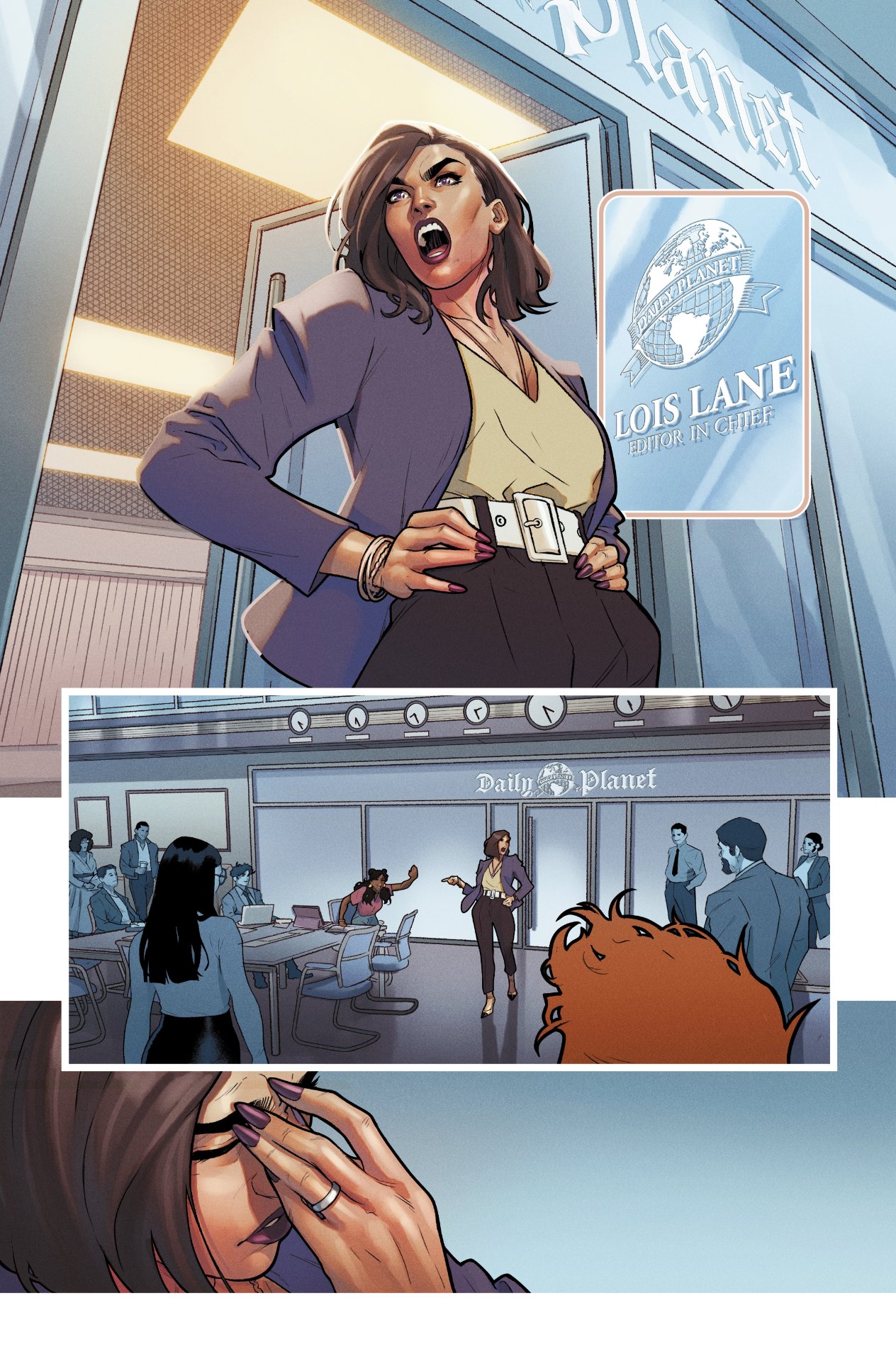
Nrama: Joshua, on the flip side of that; you've been in the Superman world for a minute, building out the current Superman mythos with Phillip Kennedy Johnson and Tom Taylor. So I wanted to ask you: heading into #1, what are you pulling from those two writers?
Williamson: I'm not sure if I would say I was pulling anything from them. You know, I talk to those guys fairly often, and I think over the last couple of years, I’ve become friends with all of them. They actually knew I was working on this before I knew ... before it was even offered to me.
We talked about what that was going to look like and how we were going to move forward, and one of the things we talked about was making sure there was connective tissue between our books and making sure they're all big "Triangle Era" fans**. We were talking about that a lot, about how those books really work with each other.
[**EDITOR’S NOTE: The "Triangle Era" is a period in the 90s during which three Superman titles ran at the same time. The books were numbered normally on the left, then numbered again in a triangle on the right, indicating in which order the linked books were to be read. Find out more about the "Triangle Era" in Newsarama’s Death of Superman interview with Dan Jurgens.]
Williamson: But those books were pretty much weekly, and we didn't necessarily want to do that. We wanted to make sure that all three books took place in the same world, but I wanted to make sure this book felt like a fresh start and was really accessible. I wanted to make sure that you could read this if you haven't read a Superman comic for the last five years, or ever.
You talk about pulling, I would say it was talking to [Taylor & Johnson] about that. We talked a lot about Action Comics #1050. I don't think there's anything that I could exactly say I took from them, but I did talk with those guys a lot while we were putting on the book. The three of us talked about what was going to be in War World, Return of Kal-El, and Action #1050.
So at that point, it was more of us working together and being on the same team going forward with it. I'm not sure if I took anything particularly from them because once you got into Action #1050, we were all on the same page already and we were all talking about the idea of Lex Luthor being the big bad and going to prison.
Again, we wanted to feel like this was a jumping-on point and that you can start here. So it wasn't a matter of taking from those guys, because we want the books to stand alone, you know? It was really more about me trying to find my way into the book than it was for me pulling or taking from anybody.
Nrama: Understood. It does feel like a jumping-on point, but familiar at the same time. However, one new thing about this story is Supercorp, a Luthor-funded company dedicated to "helping" Superman. Jamal, can you tell me about designing Supercorp headquarters and any Easter Eggs we might see there?
Campbell: This is this Superman-based tech company, but it's like, not Superman at all. It's Superman by way of Lex. So there’s Superman branding everywhere, very much like Superman Incorporated. When Superman is getting the rundown of what this is, he is very uncomfortable. He isn't buying into it. He doesn't like this at all.
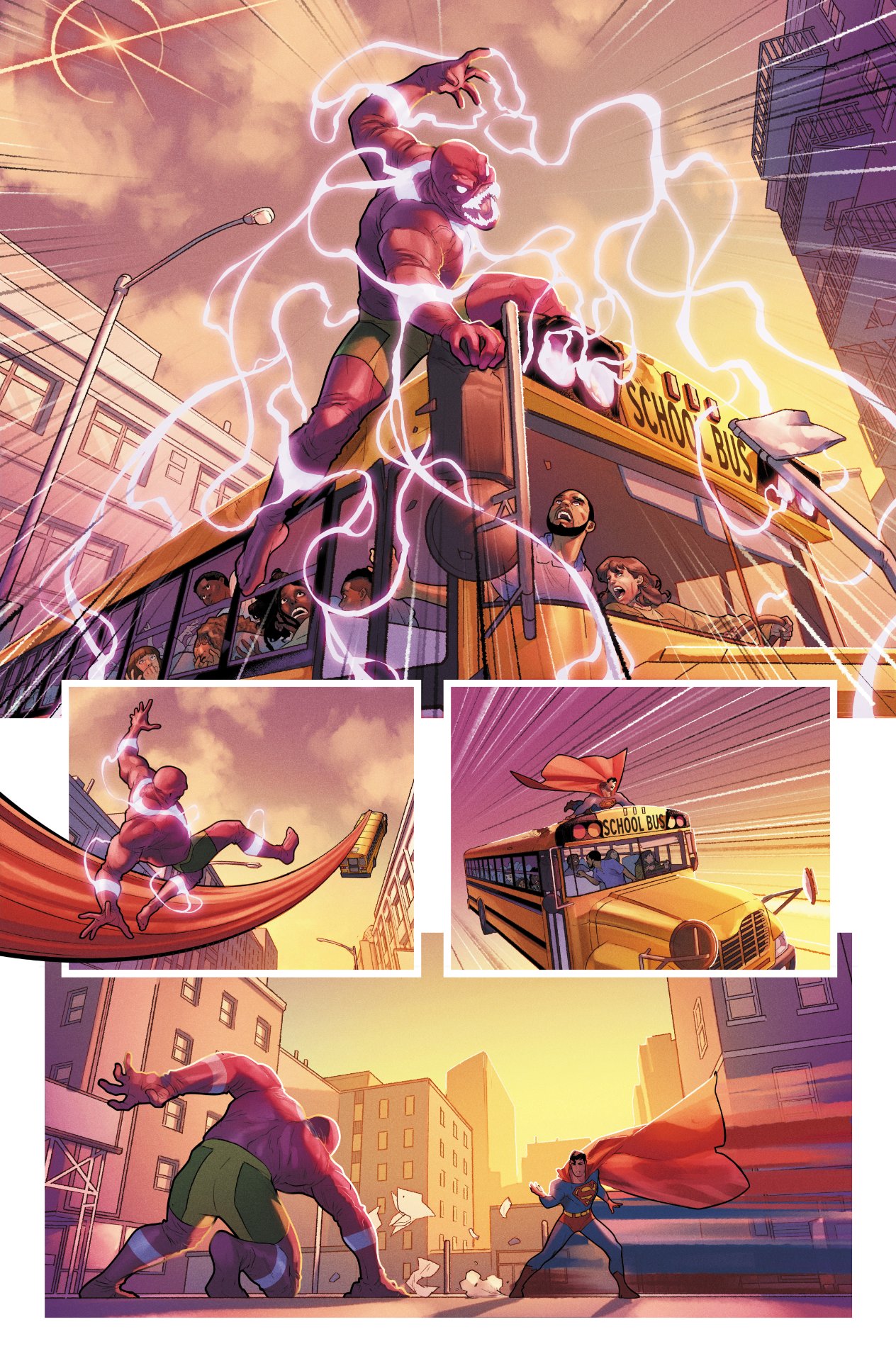
From there I was asking, "Okay, how does he react and bounce off of that?" In terms of like Easter Eggs, when we were doing that page, Josh sent me different toys and different costumes [Superman] has had throughout the years, different outfits that we put in this page that hearken back to like the past but also communicate, "This is what Lex thinks Superman needs."
Supercorp is what Lex thinks will bring his version of Superman and his version of Metropolis to fruition. Having that idea to design off of was very fun.
Williamson: One of the things we talked about last year is that Clark understands the power of his symbol. He respects what that symbol means and what it means to other people. And for Clark to see Lex corrupt it... it makes him uncomfortable. It makes him annoyed.
There's this corporate thing where everything has a Superman logo on it. It takes on a different meaning because corporate logos are intended to sell things. Lex takes this Superman symbol that is supposed to mean hope and uses it in a corporate way. And he’s like, "I'm doing what's best for you." Like that's, you know, everything about the super core idea is, is about that.
Nrama: How does Lex Luthor feel about that? He’s almost taking a step back and letting Superman shine. What could cause him to do that and how does he feel about it?
Williamson: I wanted to show this different version of Lex, a version of Lex that admits that he was wrong about something, I think, for the first time. That is, that the world needs Superman.
But because it's Lex Luthor, there's always something else going on. You know, there's always some other scam going on, some nefarious thing. But it's all because he believes that he is a hero. He believes that he is doing what's right for people and what's right for the world.
Nrama: Well, despite Lex’s scheming, the solicits for this book say that "The future for the Superman family has never been brighter." Jamal, what does that mean to you?
Campbell: To me, it’s very much that this is classic Superman, right? This is Superman as we've all known him, as we all learned to love him in whatever form that took, whether it was the animated series, which it was for me, or the old movies, or the comics. Superman has this very distinctive style about him and the world around him.
So I wanted to bring that up as where we're starting. We're not starting from Superman trying to build up or Superman in a dark place. We are starting from Superman as bright and high and shining as he is. And his world is as shiny as it can be. And then it’s like, ‘let's have fun with it.’
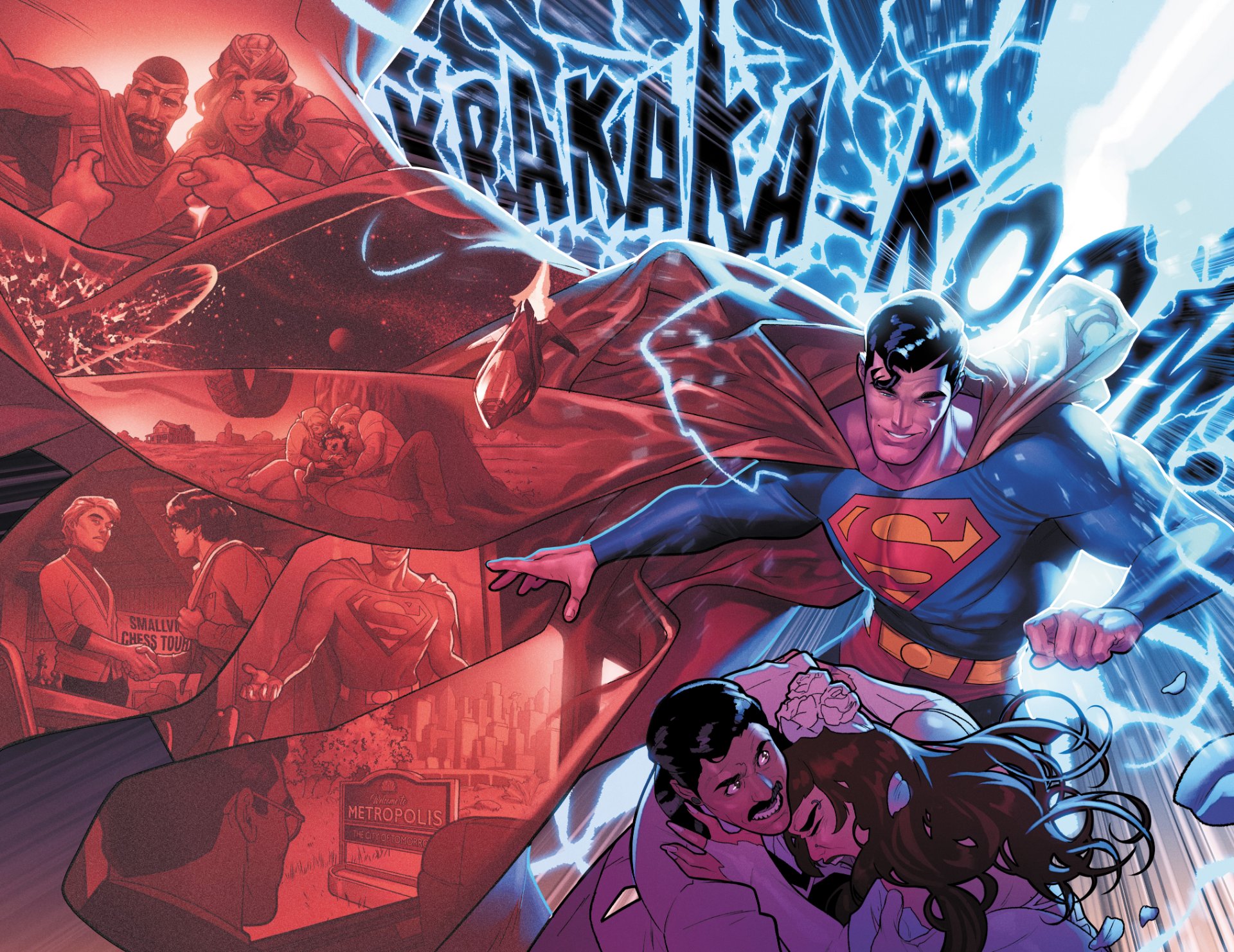
Let's drop Superman in situations where he hasn't been before. Let's take iconic villains and give them a little twist and see how Superman deals with this. How does he stay this shining example of hope and of justice and of the best of us in all these different situations?
I feel like that was something that, when we first started talking about the book, Josh and I were like on the same page about, almost immediately. We each had our own ideas of what we wanted to do with this book, and we were very lucky that those ideas for the exact same thing are very much on the same page from the jump.
Williamson: Yeah.
Campbell: So, yeah, it was like, "let's have this bright, fun, pulpy Superman." Superman should be fun. He should be having fun. Let's do that.
Nrama: What continues to make that classic Superman interesting? Because he is interesting, isn't he? He continues to inspire and excite us.
Williamson: I keep coming back to the idea of how he looks at humanity and how humanity looks back at him. I don't think what Clark does is about him; it's about other people. And you see that, and you see all these amazing iconic images of him, and it gives you hope in terms of the DC world and our world.
You might be having a really bad day and then see an image of Superman, and you might stand up straight for the rest of that day. Superman almost carries the weight for you. And so when you see him, it allows you to kind of release that tension and that pressure. That's how I feel about that character, you know? You see him, and it’s like, things are going to be alright.
Campbell: Superman is this big, shining, heroic icon, but when he looks at you, he sees the best in you. That idea of having friends, loved ones, look at you in a certain way, in a way you don't always see yourself… that means so much.
Now imagine you have the most powerful person in the world. He's saving people, saving cities, saving the world. Then he comes down to you and looks at you the same way. That's inspiring.
I think that idea of like seeing that character do that, and then translating it into how we live our lives in the real world, I think that really propels people to be a shining example of what we could be and to want that in other people.
Check out a gallery of all of Superman #1's covers by Campbell Ed Benes, Sebástian Fiumara, Tom Derenick, Ibrahim Moustafa, Francesco Mattina, Alexander Lozano, Gabriel Rodriguez, Riccardo Federici, Jorge Jiménez, Andy Kubert, Ariel Colon, Nick Dragotta, and Simone Di Meo.
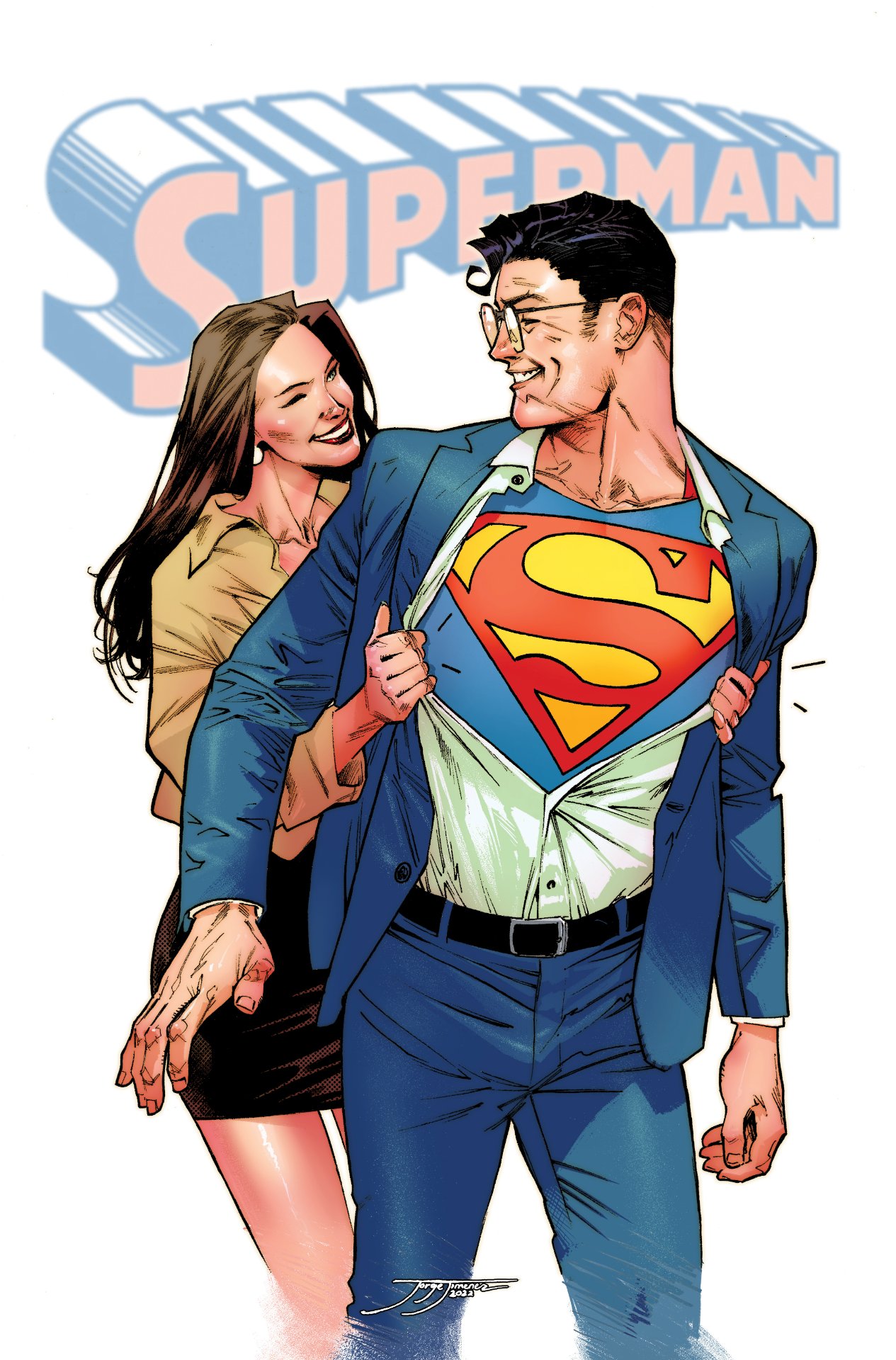
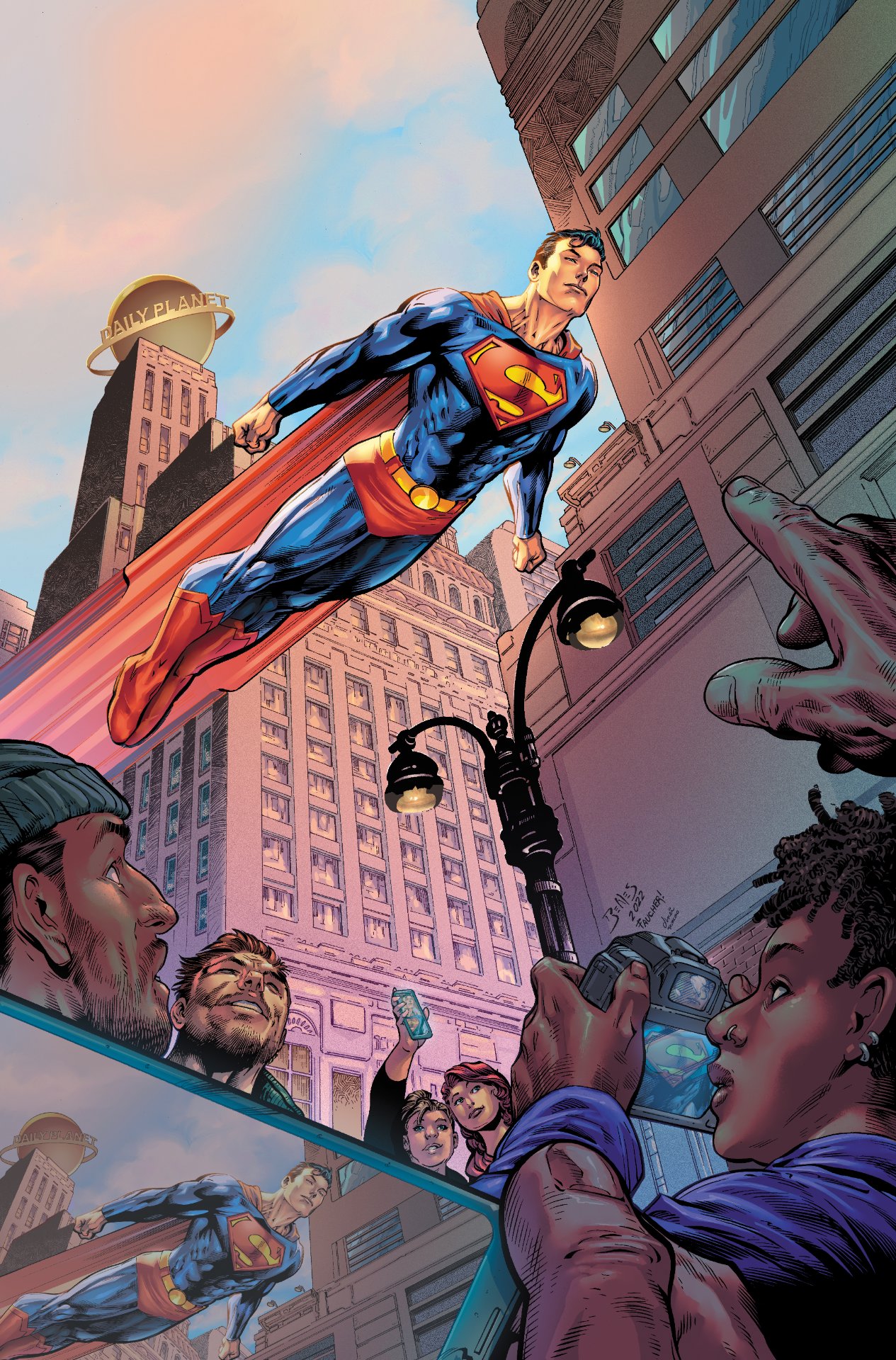
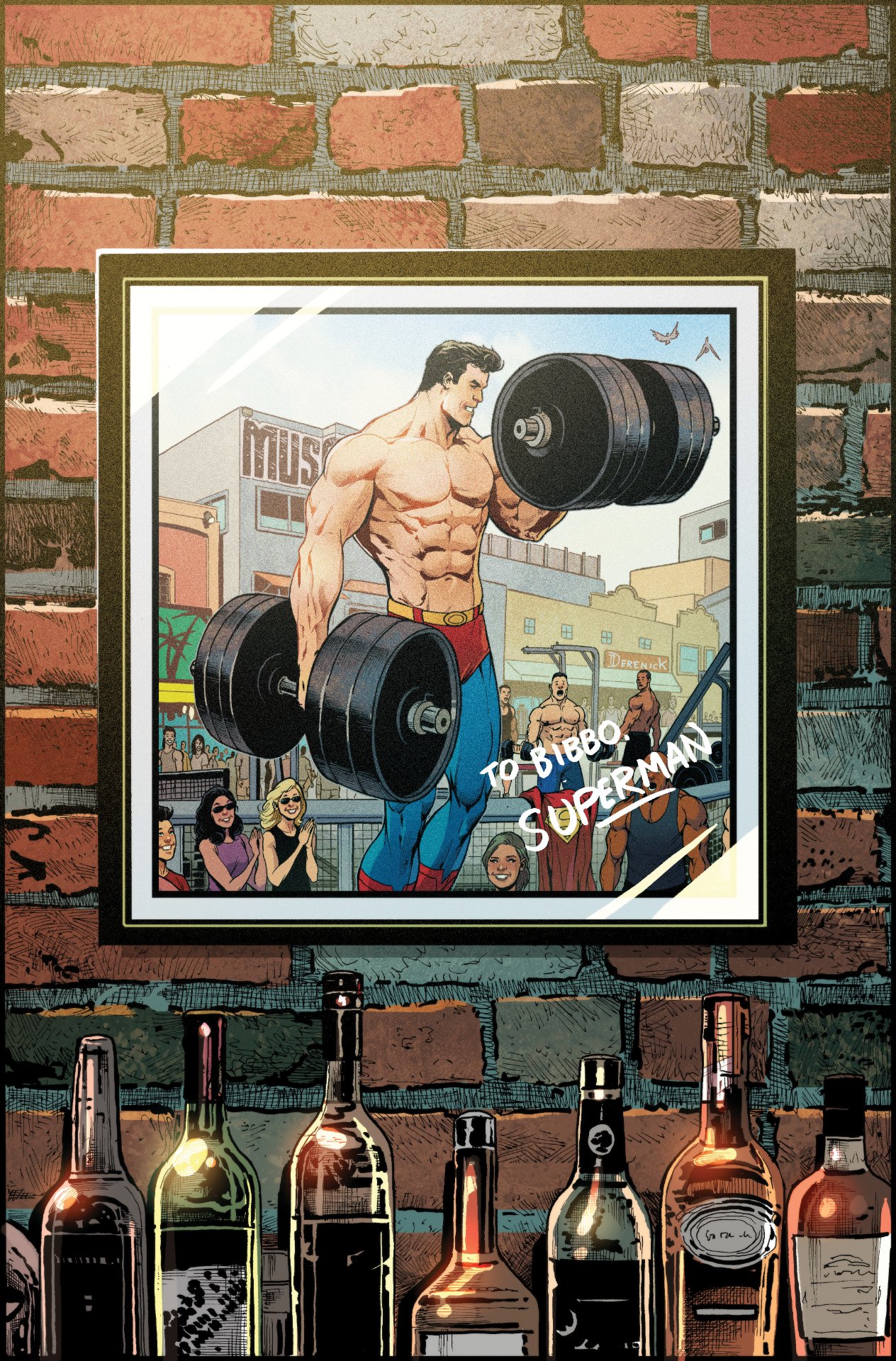
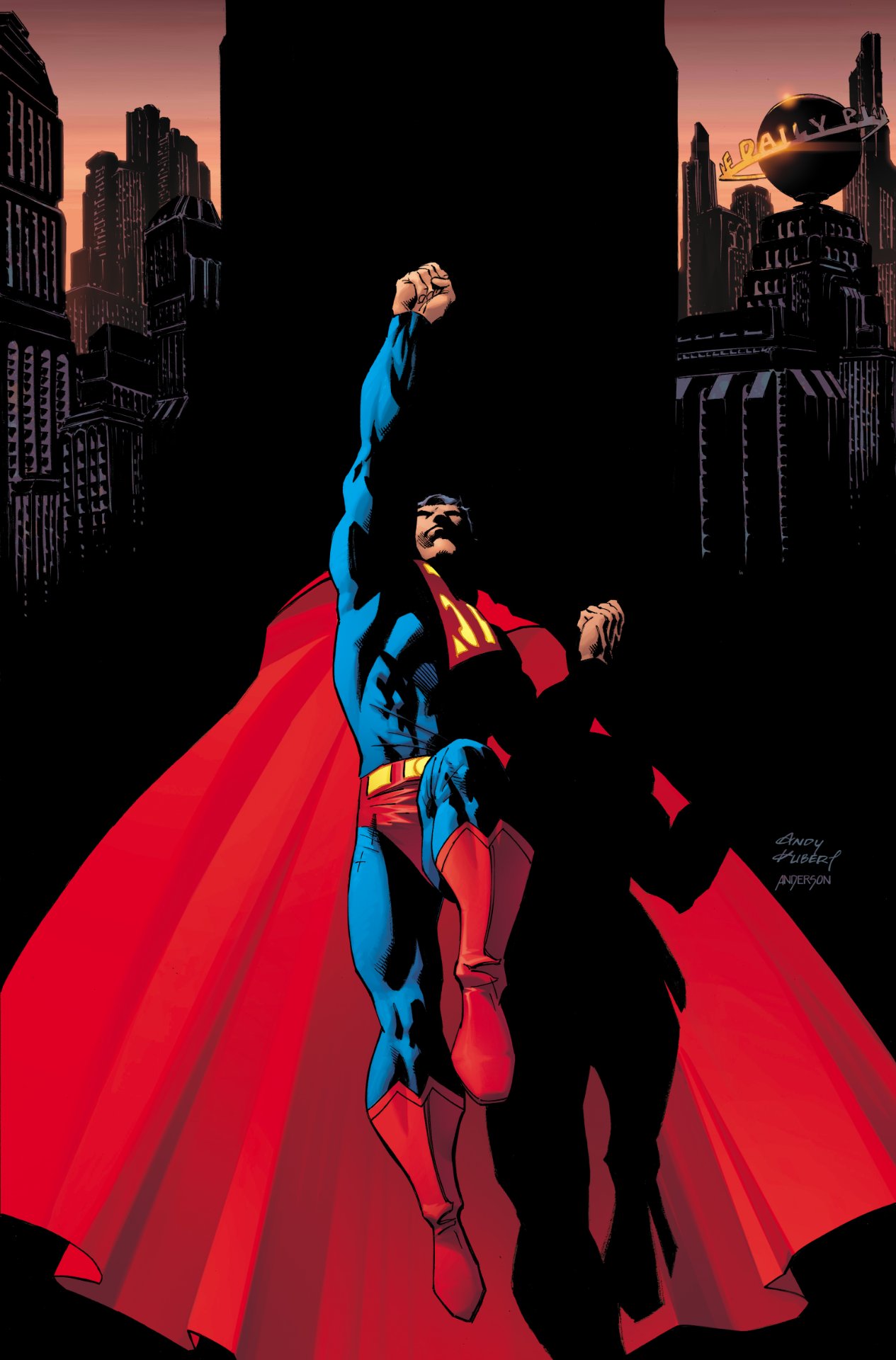
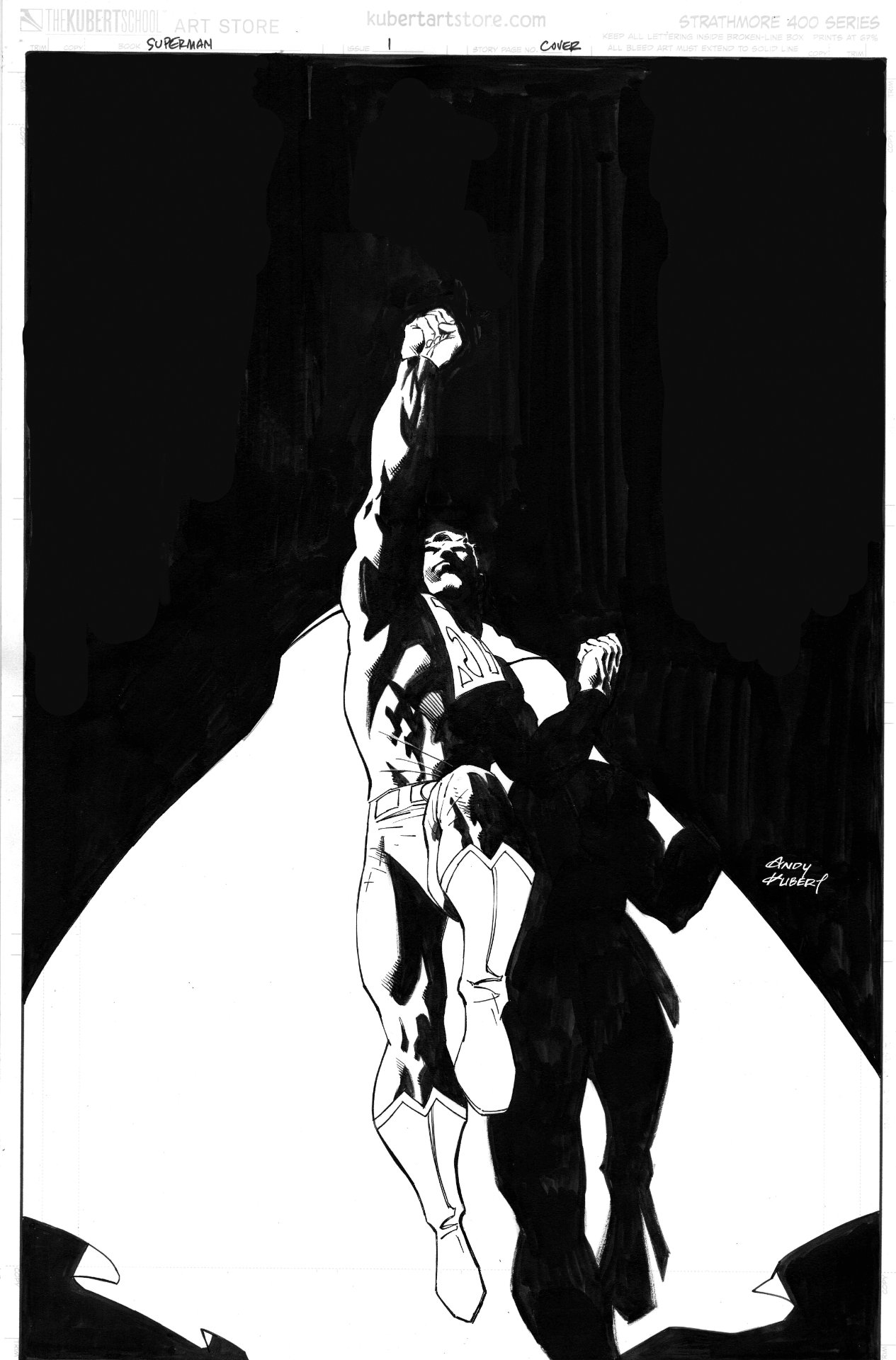
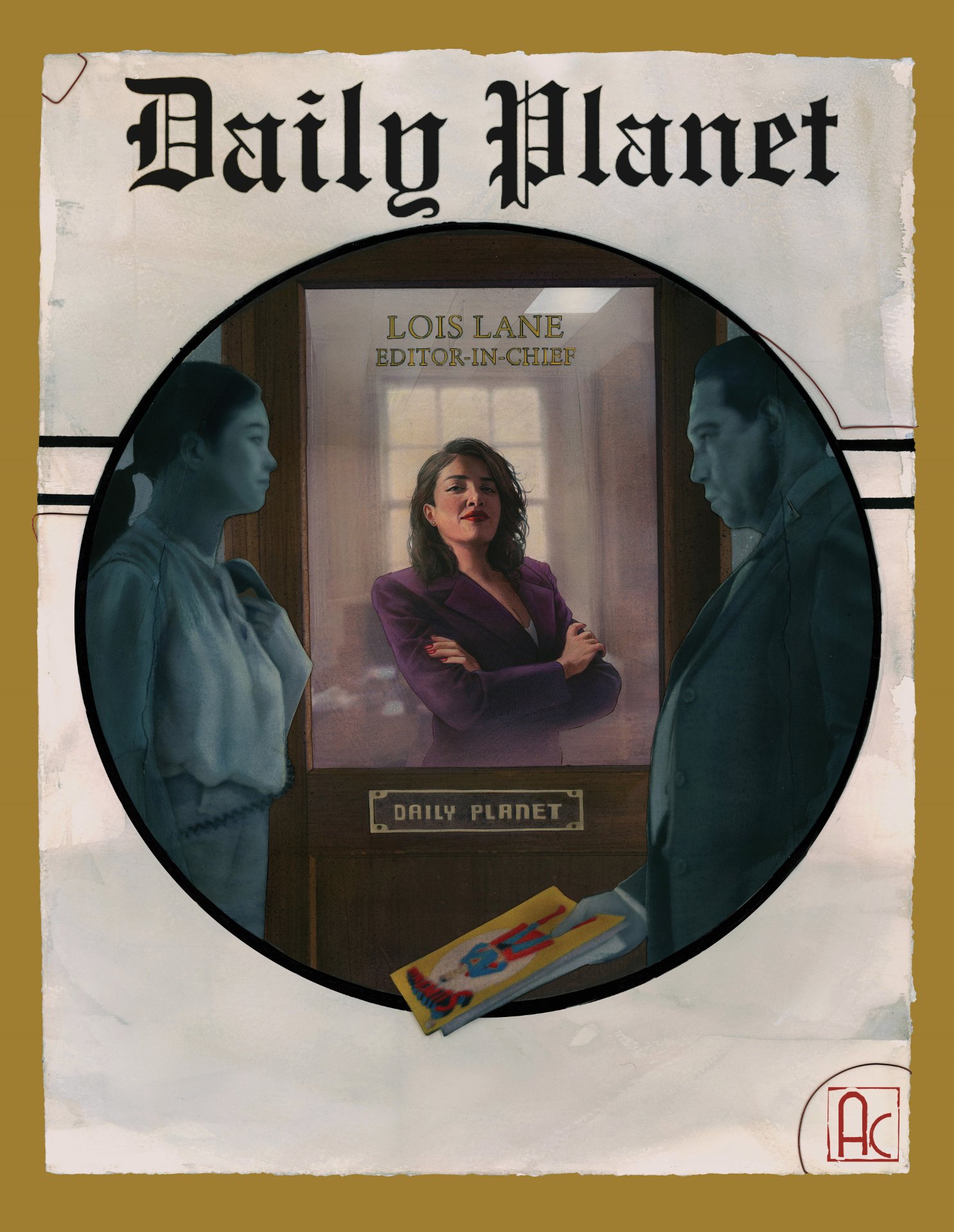
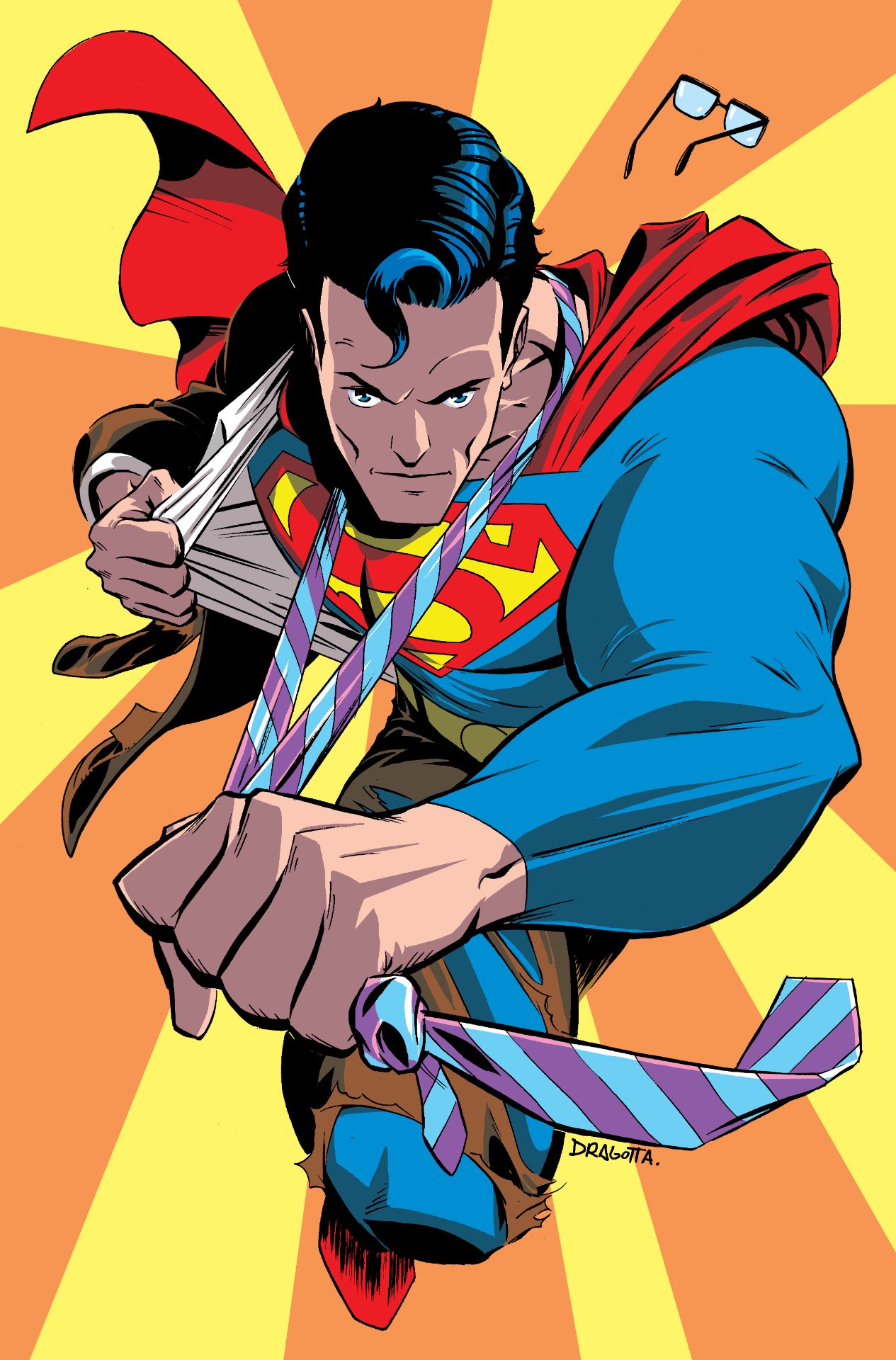
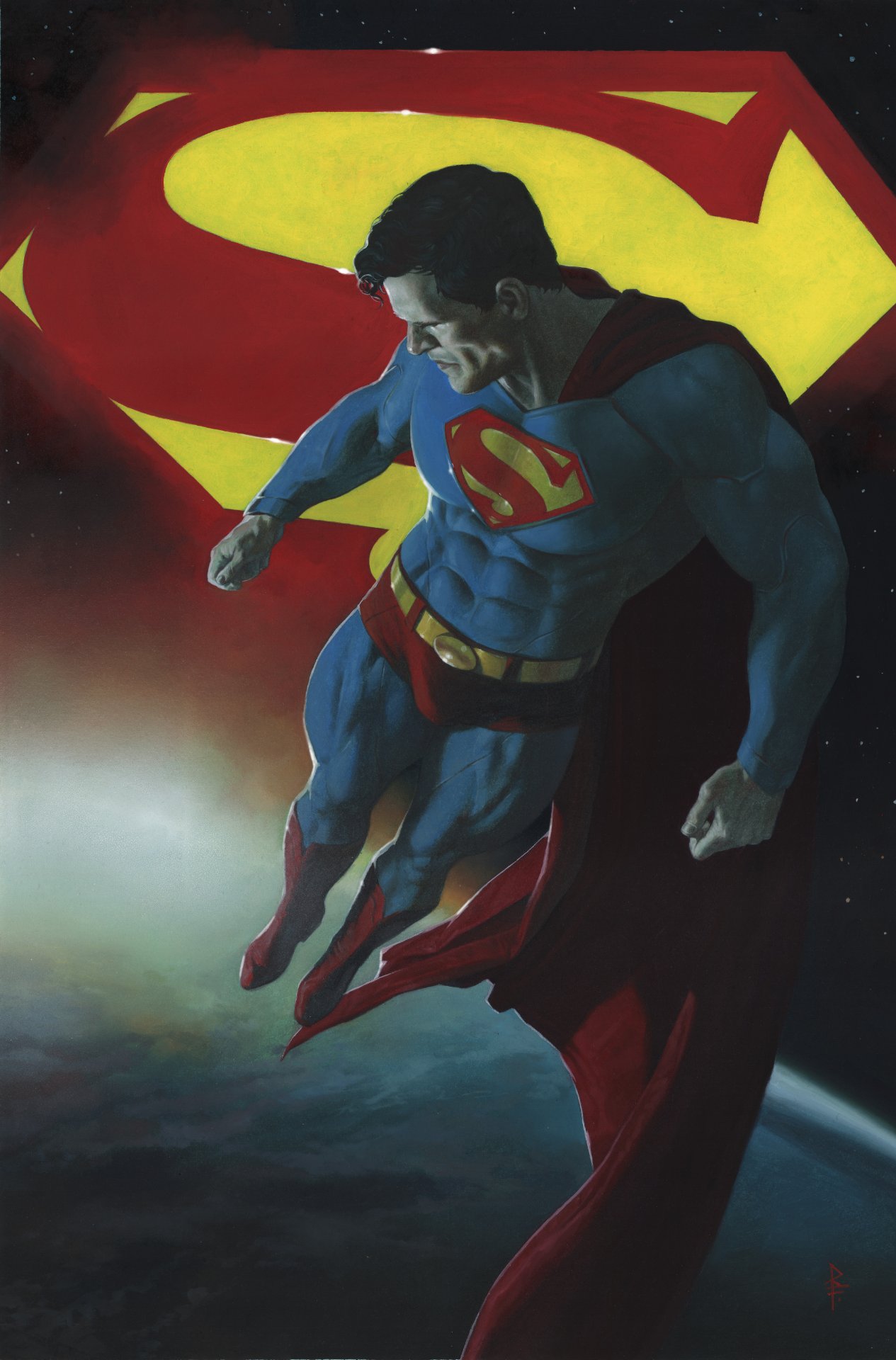
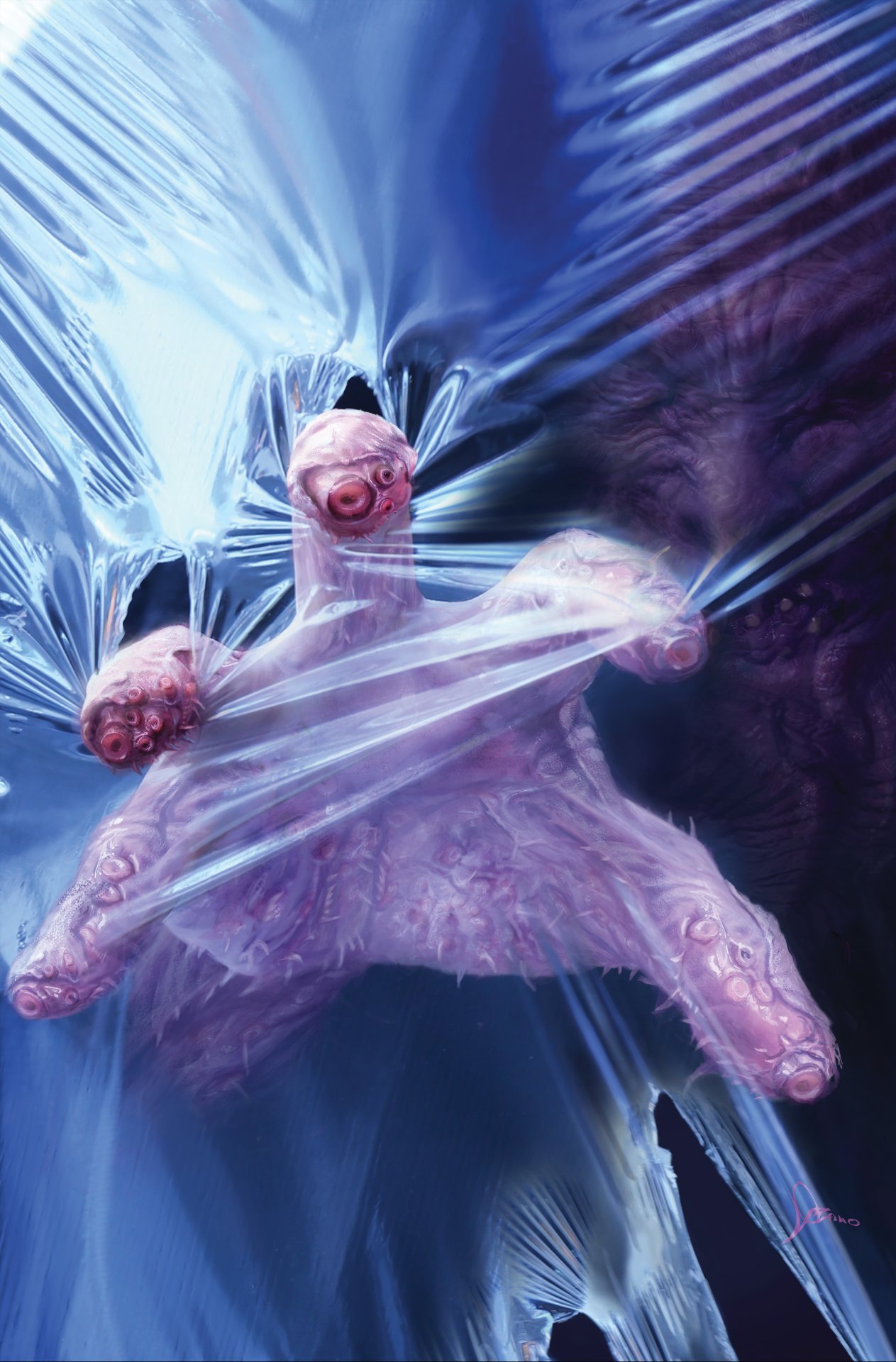
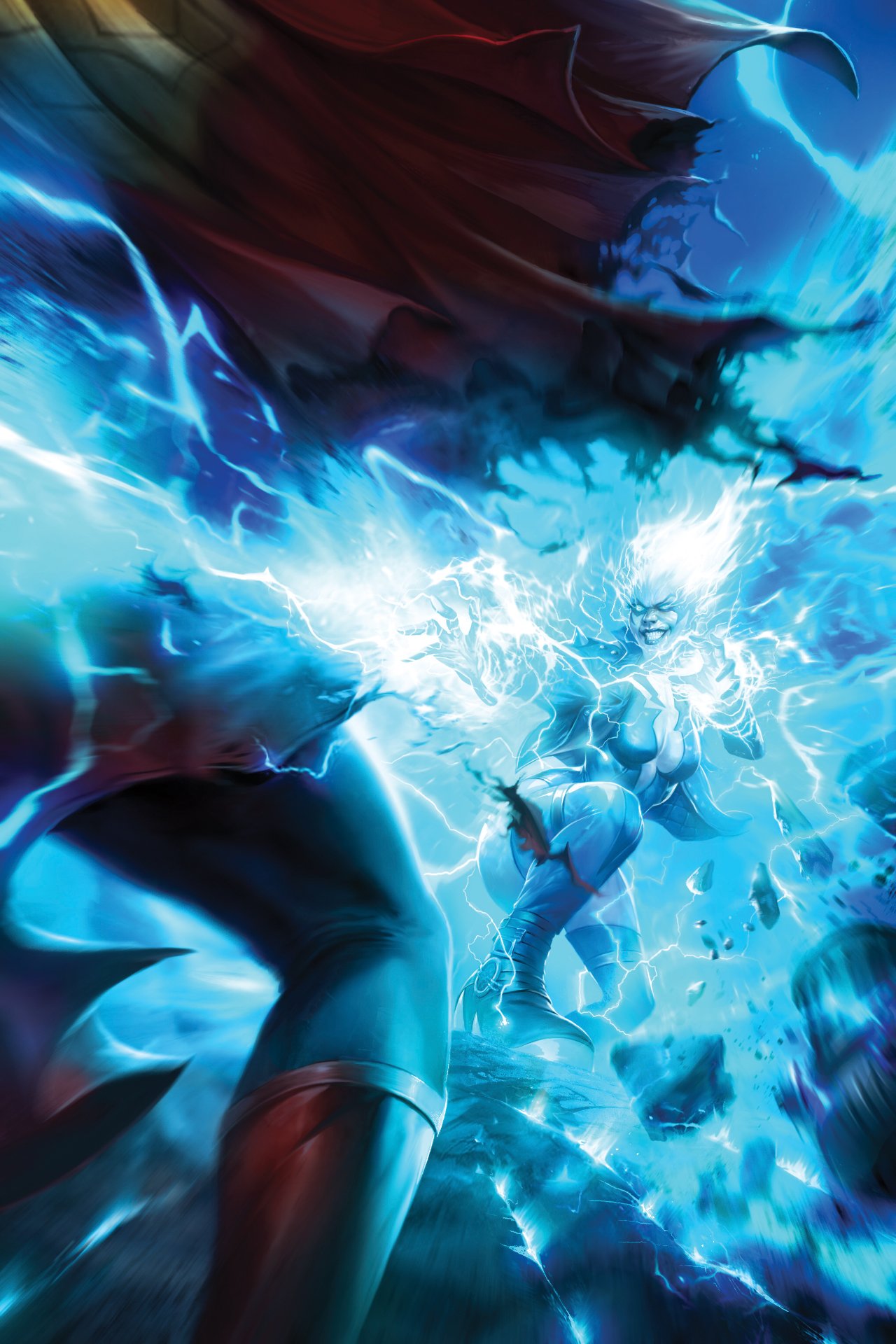
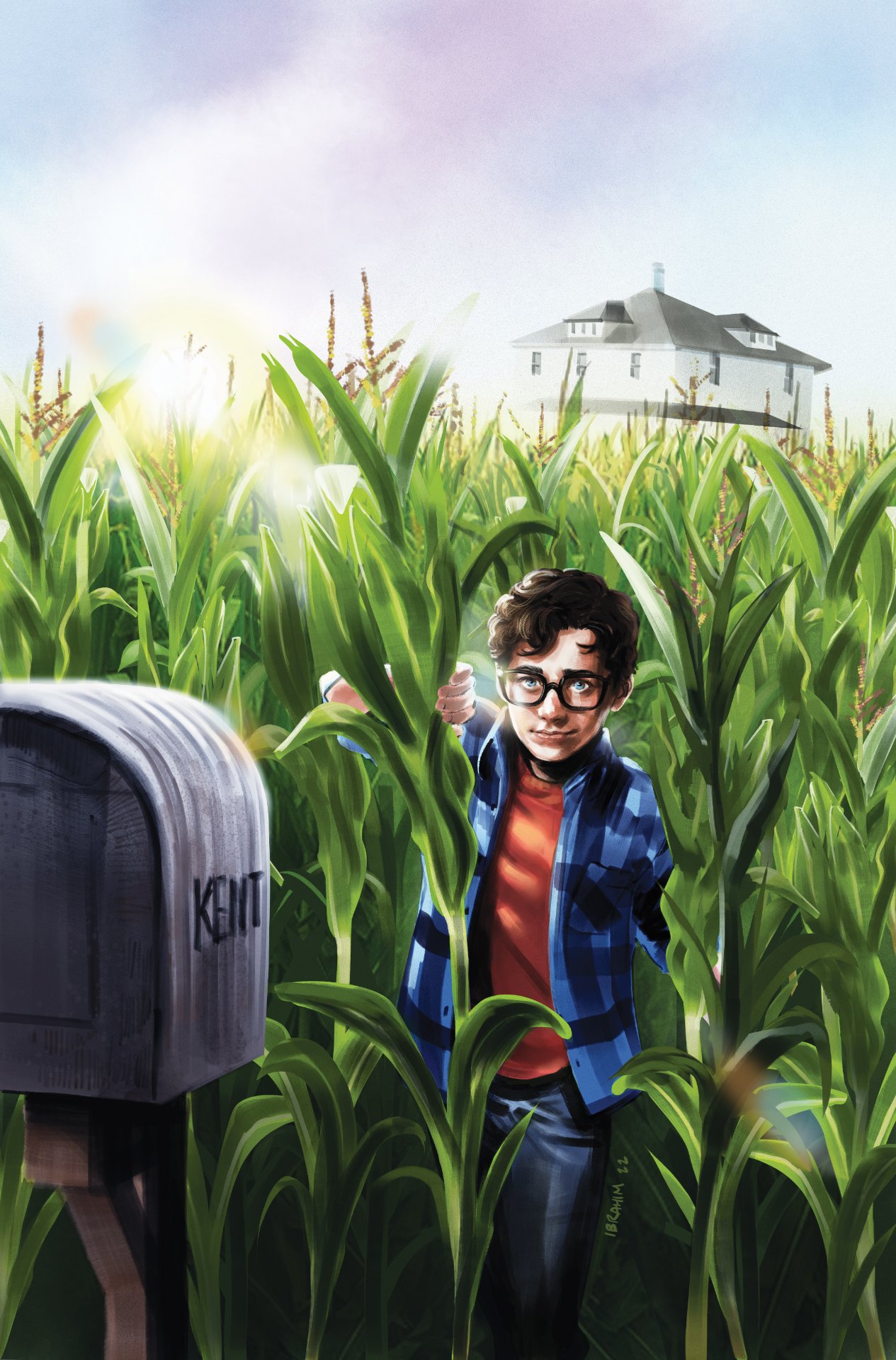
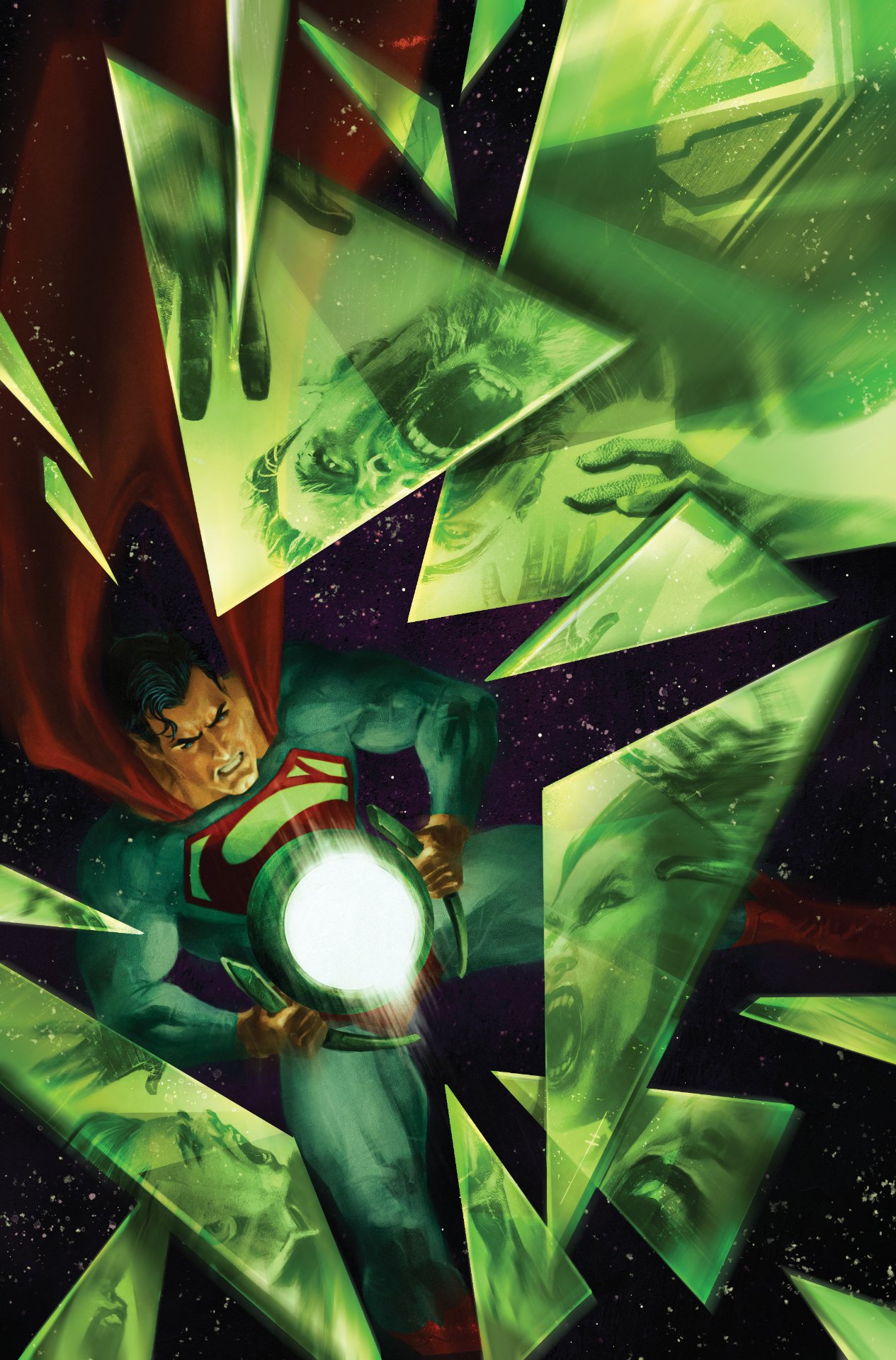
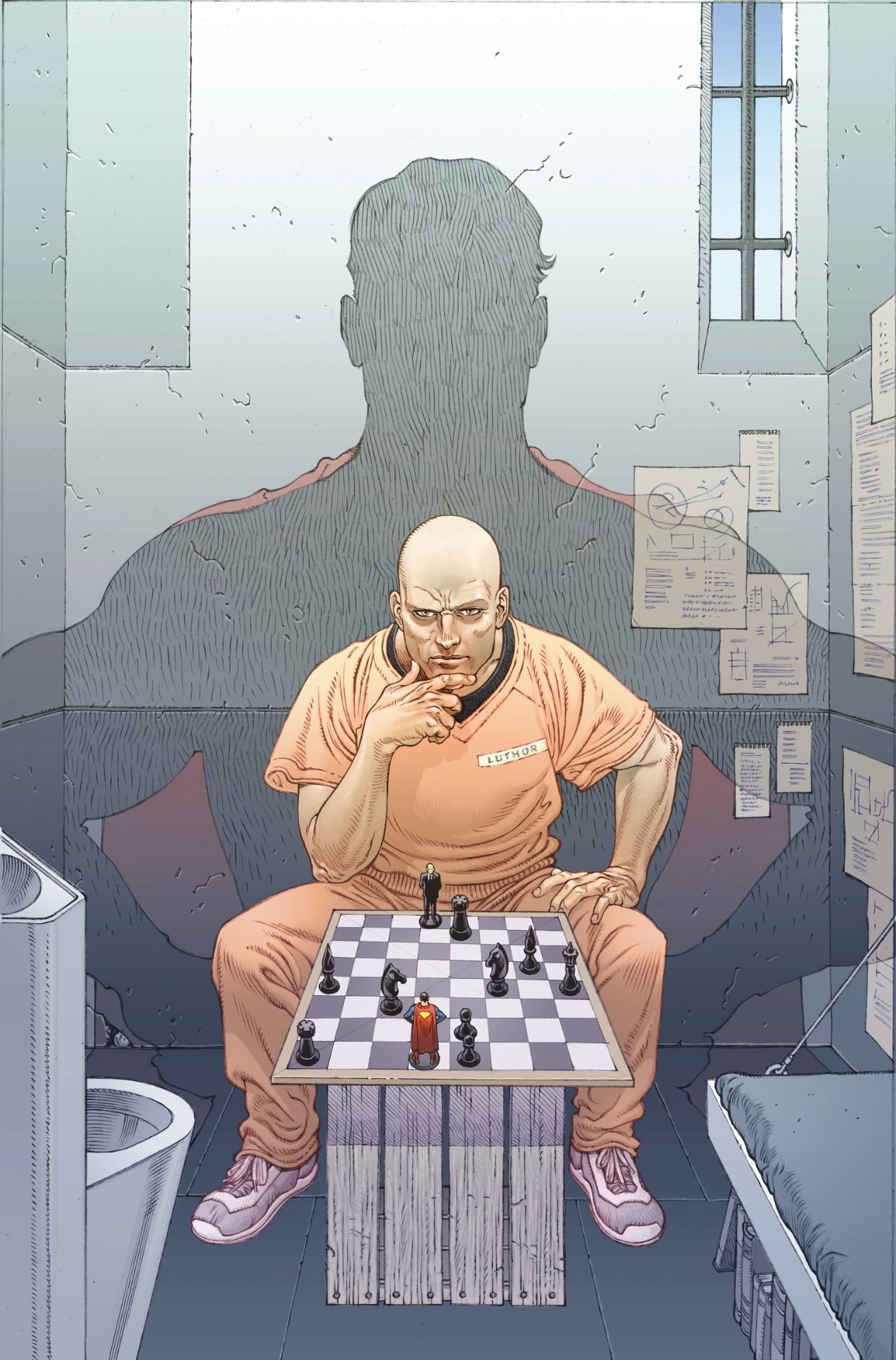
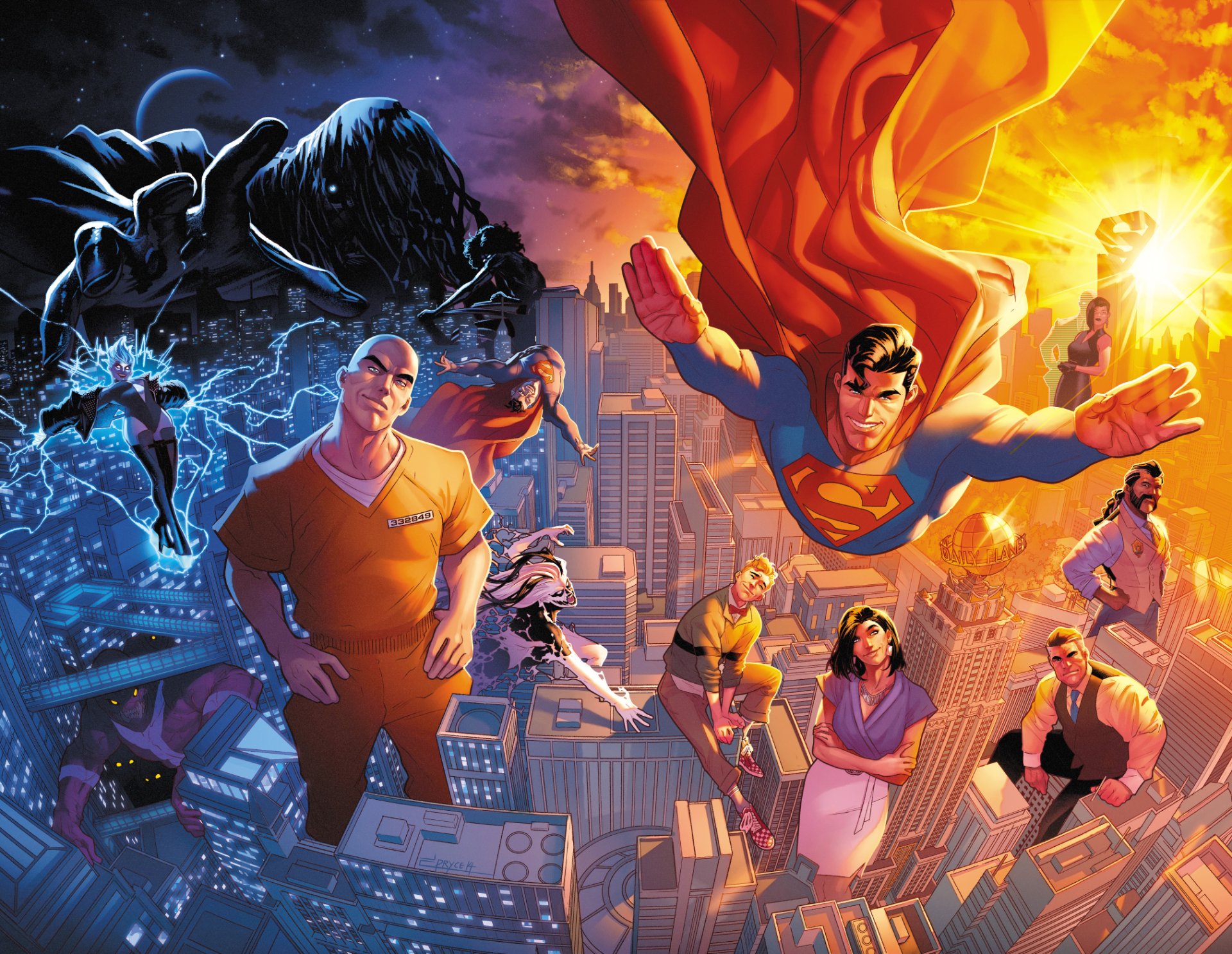
Can't get enough of the Man of Steel? Read the best Superman stories of all time.

Grant DeArmitt is a NYC-based writer and editor who regularly contributes bylines to Newsarama. Grant is a horror aficionado, writing about the genre for Nightmare on Film Street, and has written features, reviews, and interviews for the likes of PanelxPanel and Monkeys Fighting Robots. Grant says he probably isn't a werewolf… but you can never be too careful.


